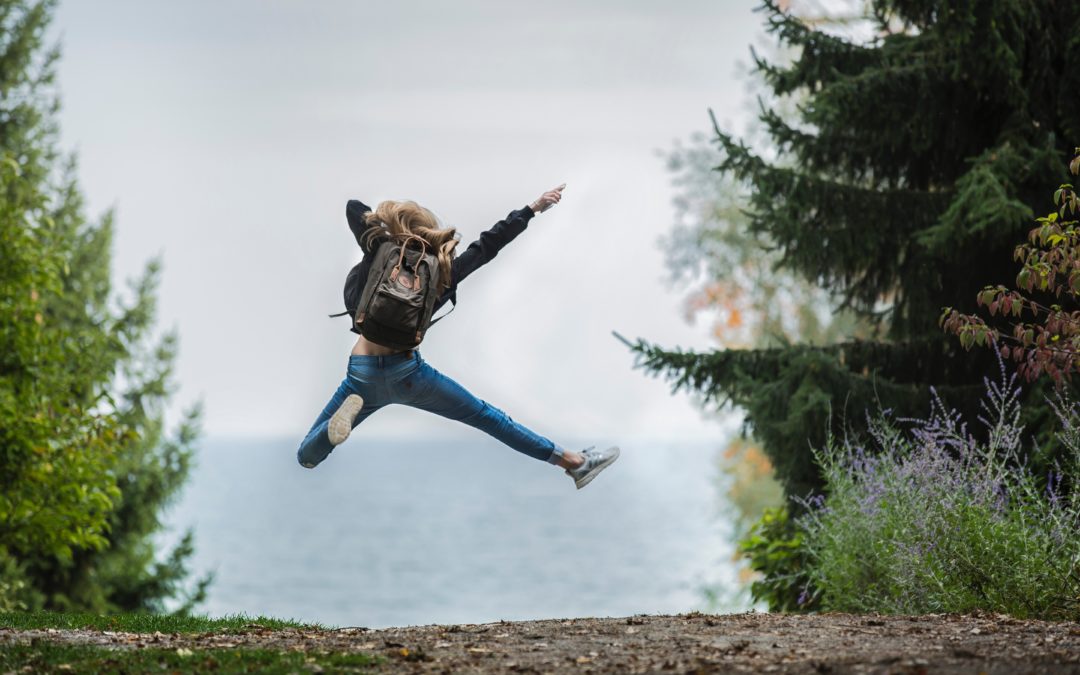After feeling sluggish for a few months, I decided enough was enough, and vowed to take back control of my energy levels. From spending time in nature to saying no to that Sunday evening glass of wine, could small changes allow me to begin to feel myself again? Here’s what worked for me…
- Spending time in nature
It’s the end of a long day, and all I want to do is collapse onto the sofa with a good friend, a glass of wine and watch Love Island; the absolute last thing I want to after an hour-long commute is put on my trainers and take a stroll. But apparently, when energy levels are low, spending time in our nearest park, field or woodland could be one of the quickest vitality boosters at our disposal. Studies* have found that spending just 20 minutes in nature can not only make us feel more alive, it can also boost our resilience to physical illnesses. So, I make a suggestion to a close friend – instead of heading out for dinner and drinks, does she fancy a walk in our local nature reserve? Reluctantly she says yes. A year later and I can’t count how many times we have met to walk – not just after work but at lunchtimes too, which has hugely helped with the 3pm slump. The benefits are endless; the nature helps move me away from my relentless to-do list so I feel less stressed, I feel fitter and healthier, and closer to my friend in the process.
2. Taking a break from booze
Sunday evening, and a friend brings a glass of red to the beer garden picnic bench we’ve commandeered. It looks delicious, but then I think to tomorrow morning. ‘Alcohol is often the most misunderstood substance regarding sleep.’ Says Matthew Walker, author of Why We Sleep. We often think that alcohol has the ability to relax us and even help us to get off to sleep, but that’s not quite the case, says Walker. ‘It doesn't come with the restorative benefits of sleep or sedation; it's just a lack of consciousness. What you're doing is medicating yourself out of wakefulness.’ He explains that when it comes to sleep and alcohol, there are two issues. ‘First, it fragments our sleep and we wake up many more times throughout the night. They are often short enough that you don't remember them, so you never make the link between drinking the night before, the bad sleep in between, and feeling sleepy the next day.’ But the scariest part? ‘REM (rapid eye movement) sleep is critical for both brain and body functions as well particularly mood emotion and mental health. Alcohol is one of the best suppressors of REM sleep that we know of,’ Walker explains. Saying no to alcohol where I previously wouldn’t have thought twice about it – particularly the one or two glasses of wine of a weeknight evening with a friend – has enabled me to truly see where and how it was impacting my energy levels – and justifiably so, after understanding how it affects our sleep cycles. For me now, no glass of wine tastes as good as having energy feels.
3. Looking to the East
Looking back now, I can see that the reason I started practicing yoga and meditation was due to my searching for answers. Answers for what though? You can wrap it up anyway you like but ultimately, don’t we all want to feel better, be happier and live fuller? Answers I’ve indeed found, but one unexpected result of these practices has been a boost not only to physical energy levels, but also my internal ‘joie de vivre’; the energy for living life in my heart and mind, as well as in my physical body. And it’s not just me; studies at the University of Waterloo have found that short yoga and mindfulness meditation sessions can’ significantly improve brain function and energy levels’. In fact, just 25 minutes of yoga or mindfulness meditation per day ‘can boost the brain's executive functions, cognitive abilities linked to goal-directed behavior and the ability to control knee-jerk emotional responses, habitual thinking patterns and actions’, according to this study (see this article on how to use mindfulness to directly help you with habits, temptation and alcohol.)
Try the alcohol free OYNB challenge and see how your energy levels improve: https://www.oneyearnobeer.com/takethechallenge/
References
* Richard M. Ryan, Netta Weinstein, Jessey Bernstein, Kirk Warren Brown, Louis Mistretta, Marylène Gagné. Vitalizing effects of being outdoors and in nature. Journal of Environmental Psychology, 2010
by Ali Roff



An entrepreneur and former senior oil broker, Ruari gave up drinking after excessive consumption almost cost him his marriage, and worse, his life. Going alcohol-free improved his relationships, career and energy levels, leading to him founding OYNB to provide a support network for others.







